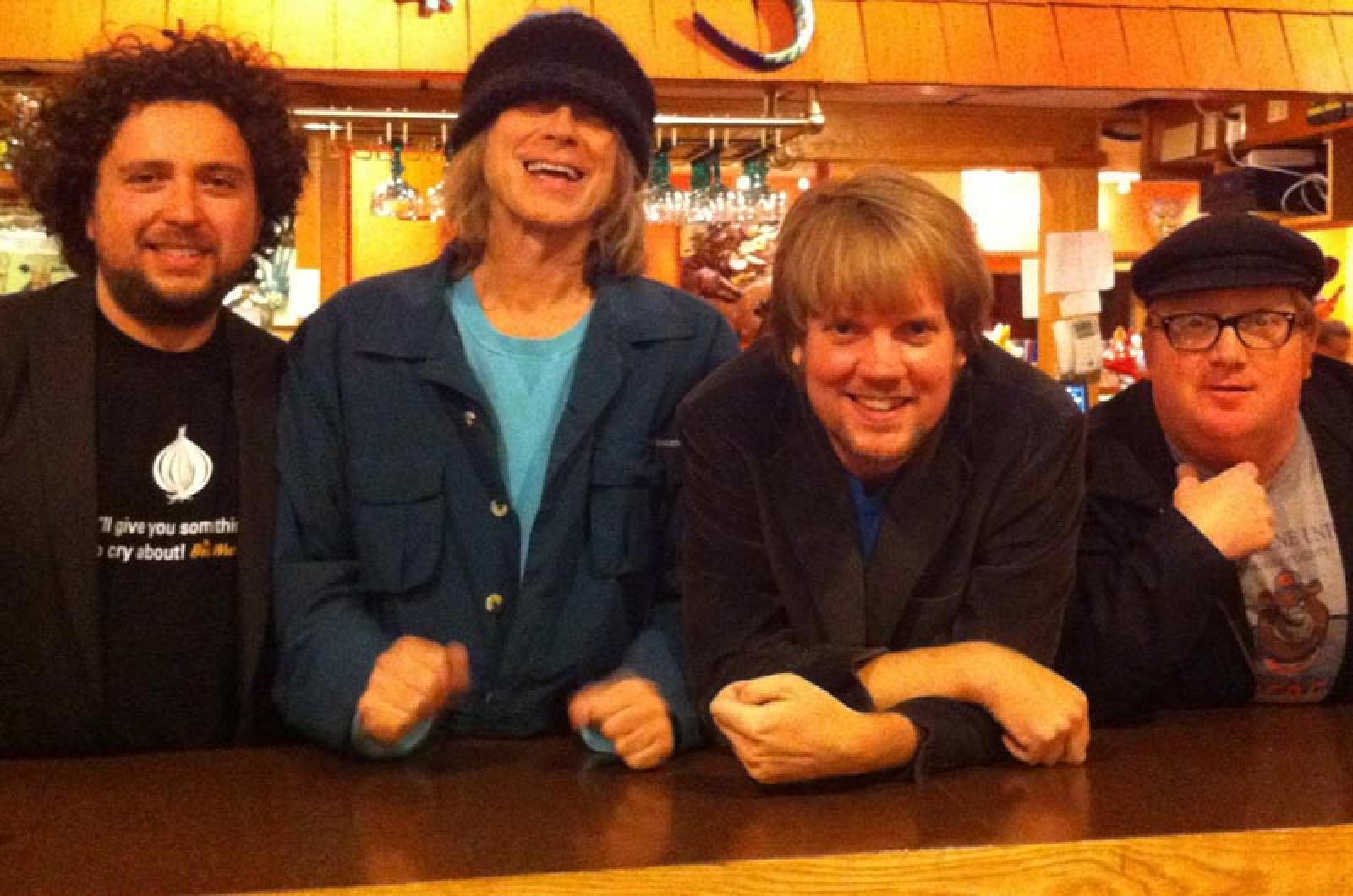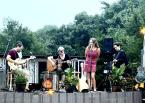From rockabilly to pop, rock and blues to jazz-rock, New Rhythm and Blues Quartet, NRBQ, can just about play it all. Founded by pianist Terry Adams in 1967, the band is known for its diverse sound and high-energy live performances. Recently Mr. Adams revamped the band’s lineup and has been as busy as ever, churning out two albums — one live, one from the studio — in the past two years. Another studio album is in the works. NRBQ returns to Martha’s Vineyard to play at Flatbread this Sunday, July 21, after a long time away from the Island. The show begins at 9 p.m.
Mr. Adams said that the band is excited to be back.
“Playing [on Martha’s Vineyard] is a totally different experience from playing anywhere else,” he said. “The Island is all about good vibrations. We like to take in those vibes and send them back out to the crowd.”
NRBQ’s music defies categorization except in the most general sense. It is classic rock, combining key elements of the many popular styles. Some tracks have the electric blues feel and gritty vocals of a highway roadhouse show. At other times, Mr. Adams channels the kind of jazzy piano licks you might expect to hear on a Steely Dan album. NRBQ also shows off smooth vocals reminiscent of the Beach Boys or the Beatles. Their most recent live album, We Travel the Spaceways, features the prominent influence of modern jazz musician and composer Sun Ra.
The band’s live performances are known to be highly energetic and engaging. Mr. Adams said he achieves this by performing without a set list or any kind of pre-planning. Instead, he prefers to play the show by feel, judging the next song to play based on what the band wants to play and what the audience wants to hear.
“I don’t believe in having a set show because it’s static,” Mr. Adams said. “It’s not in response to your location. To me, if you have a planned outset, it’s not different than a Broadway musical.”
To achieve this kind of show, Mr. Adams needs to have a good sense of what the band and the crowd are feeling. The risk, he said, is that the crowd might not go for what the band is playing. But the payoff is so much greater.
“You have to take a lot of risks, but the highlights are so much better,” Mr. Adams said. “It’s all about responding to the moment and making music for the now.”







Comments
Comment policy »